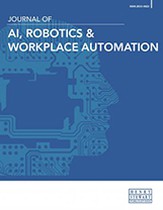Sponsored by a robot? How the human likeness of virtual influencers influences purchase intentions towards sponsored products
Abstract
With the rapid development of artificial intelligence (AI) technologies and the emerging trend of influencer marketing, virtual influencers have become promising advertising tools for marketers. Based on computers are social actors (CASA) and uncanny valley theory (UVT), this research study conducted a pilot study (N = 155) and an online experiment (N = 293) to investigate how the perceived humanness of virtual influencers affects their advertising effectiveness. The results indicate that the perceived humanness of virtual influencers increases perceptions of eeriness, attractiveness and authenticity. The increased perceived attractiveness and authenticity of virtual influencers, in turn, leads to more positive attitudes towards the virtual influencers and purchase intentions towards the advertised products. Furthermore, the current study found that such effects were moderated by the perceived similarity between consumers and virtual influencers. The theoretical and practical implications are discussed.
The full article is available to subscribers to the journal.
Author's Biography
Haneul Jang is a PhD student in the Stan Richards School of Advertising & Public Relations at the University of Texas at Austin. Her research primarily focuses on examining the impact of new media and technology on consumer behaviour and psychology, specifically exploring the dynamic relationship between humans and computers. Besides her virtual influencer study, Haneul has expanded her research endeavours to the domain of metaverse, where she investigates the interplay between social context and advertising effectiveness.
Eunjoo Jin is a PhD candidate in the Stan Richards School of Advertising & Public Relations at the University of Texas at Austin. Her research area is to empirically examine various user psychology factors that determine the effectiveness of computer-mediated communication and human–computer interaction. Eunjoo’s work can be found in journals such as Science Communication, Journal of Research in Interactive Marketing, Cyberpsychology, Behavior and Social Networking, and International Journal of Human-Computer Interaction, to name a few.
Laura Bright Laura F. Bright PhD, University of Texas at Austin, is the Associate Director and an Associate Professor in the School of Advertising & Public Relations in the Moody College of Communication. Laura’s research focuses on consumer behaviour within social media feeds related to privacy, digital well-being and analytics. Her work has appeared in the top journals in her field and is regularly presented at conferences. In the classroom, Laura delivers content in the areas of media management and advertising research methods. Her industry experience includes working for Disney, surviving the 2000s dot-com boom and bust and running a family consulting business.
Gary Wilcox Gary B. Wilcox is the John A. Beck Centennial Professor in Communication in the Stan Richards School of Advertising & Public Relations, University of Texas (UT) at Austin. He is also an associated faculty in the Nelson Center for Brand and Demand Analytics and the Center for Health Communication at UT Austin. Gary holds a PhD from Michigan State University and two degrees from UT Austin. Gary’s recent research interests include unstructured data analysis and social media analytic modelling.
